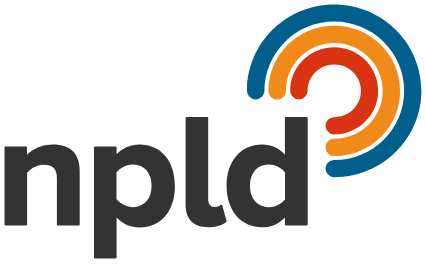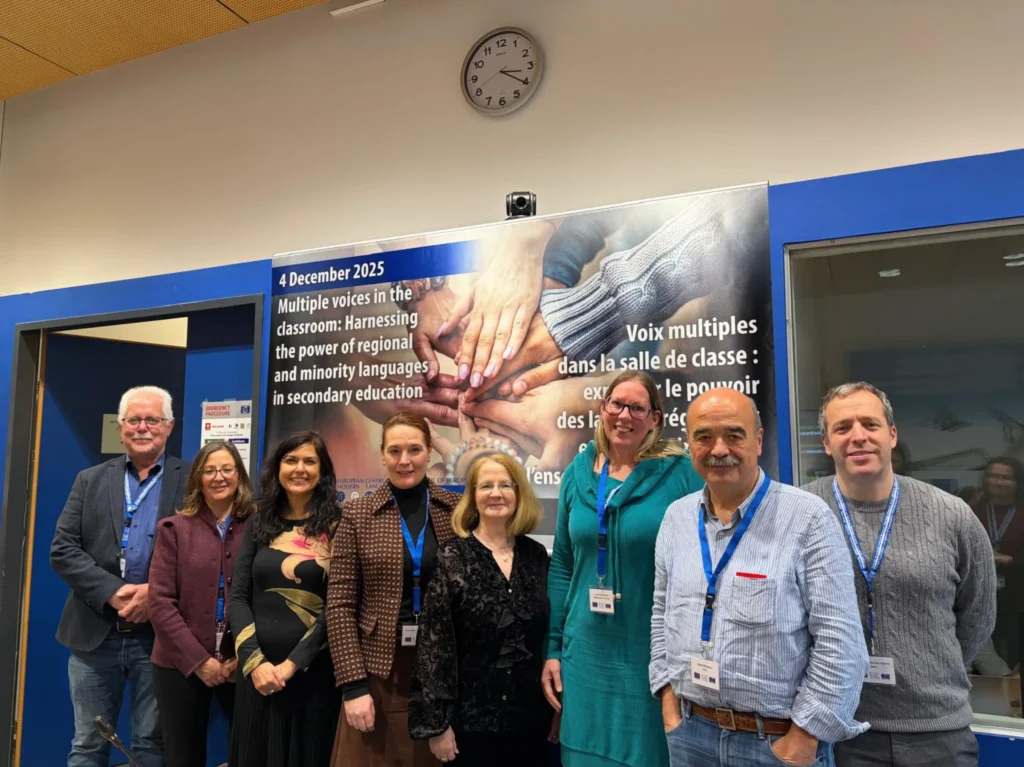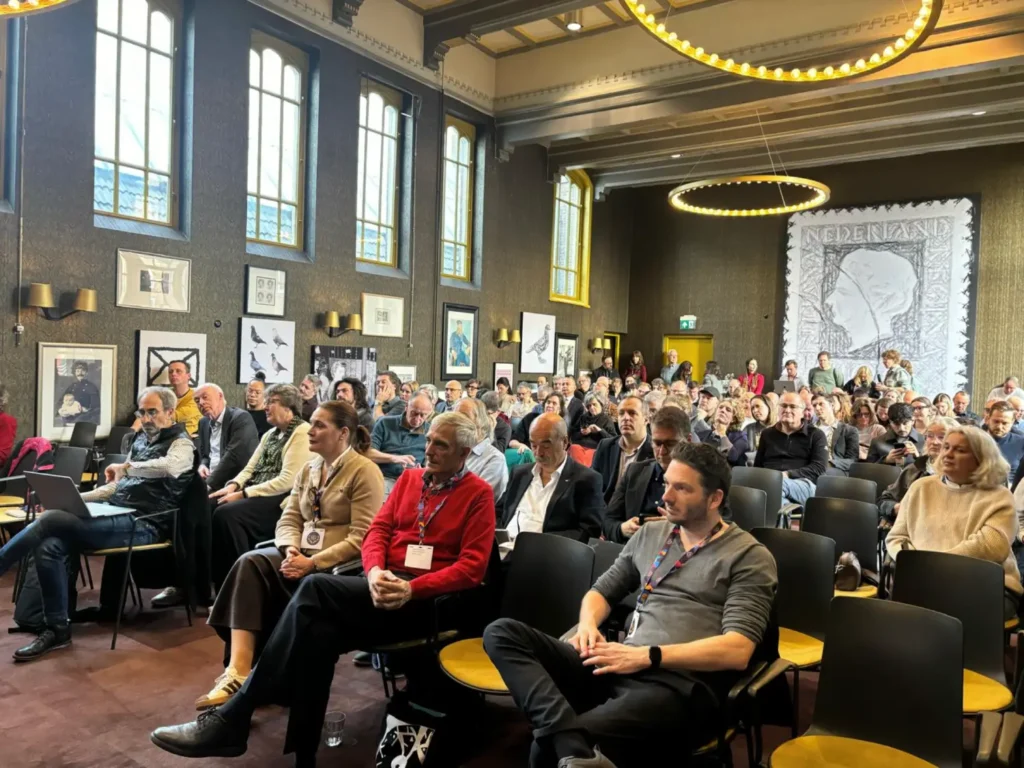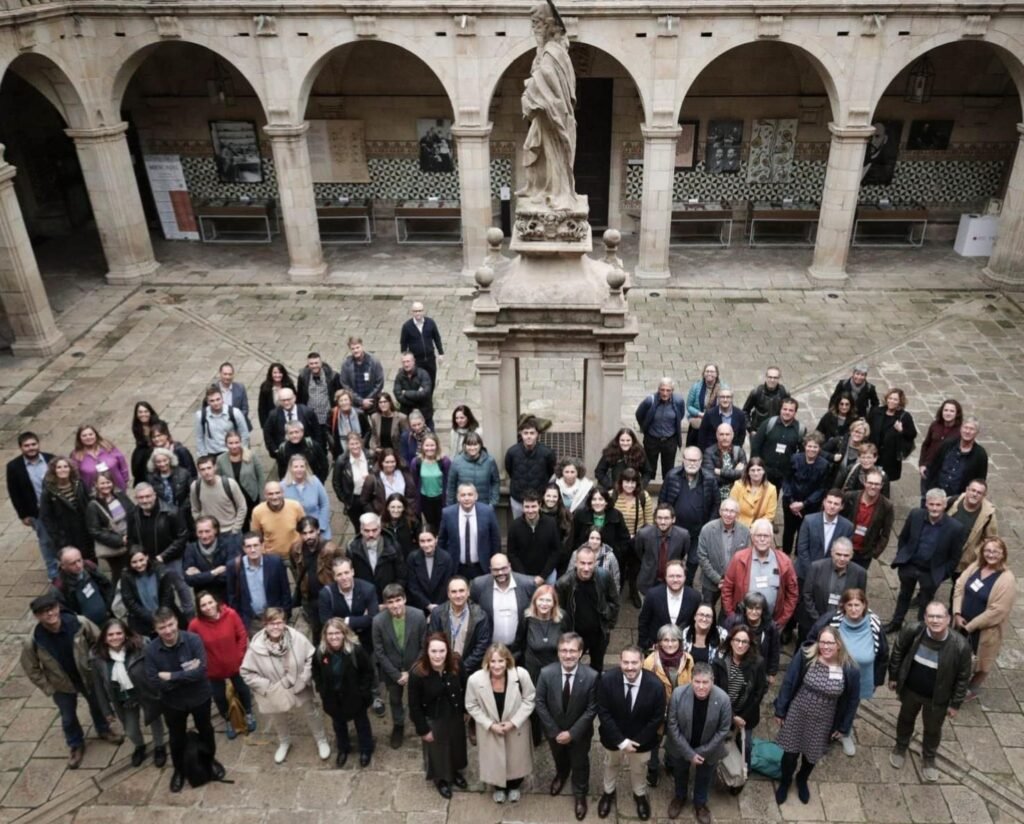
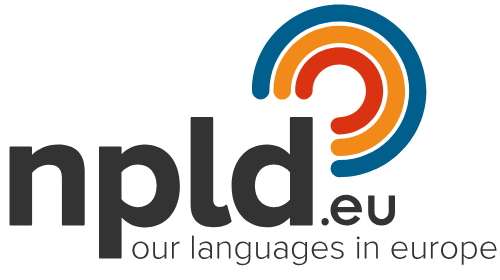
About Us
The Network to Promote Linguistic Diversity (NPLD) is a European wide network working in the field of language policy and planning for Constitutional, Regional and Small-State Languages (CRSS) across Europe. NPLD includes governments both national and regional, universities and associations as its members.
NPLD’s main goal is to raise awareness at a European level on the vital importance of linguistic diversity. NPLD also aims to facilitate the exchange of best practices among governments, policy makers, practitioners, researchers and experts from all over Europe.
Over the past 30 years the face of language planning in Europe has changed considerably. Many national and regional governments have established language boards or departments to promote their language, both at home and at a European level. As a result, a new breed of language planning professionals has developed bringing new expertise to the field. The NPLD responds to this development by providing a forum for the professionals to share best practice, and create strong partnerships to move CRSS language planning forward.
The NPLD is open to all CRSS languages as well as to institutions, public bodies, associations, universities, and civil society organizations working in the field of linguistic diversity and multilingualism across Europe.
The common goal of all the languages of the NPLD is to raise awareness at a European level on the positive aspects of linguistic diversity and to portray all languages, regardless of political status, as an opportunity for the personal, social and economic development of Europe along with being a platform to exchange best practices among policy makers, practitioners, researchers and experts across Europe.
Our history
After two years of preparatory meetings, on 11th June 2008 the Network was officially launched in an event hosted by the Welsh Assembly Government Office in Brussels. The Commissioner for Multilingualism gave the keynote speech at the event, followed by several European regional ministers and authorities who showed their support to the project. The creation of the Network represented that, for the first time, language planning boards from across Europe from both member states and autonomous governments working together with universities, research centres and NGOs would build and secure meaningful linguistic diversity in Europe.
The Network continued growing since its foundation in 2008 linked to the Welsh Language Board. Its actions were focused on connecting European governments, associations and universities to exchange best practices on language planning and to promote the use of minoritized languages in education, media, the public sphere and social policies. In 2012 NPLD became a standalone entity and was awarded with a European Commission grant (2013-15) to promote linguistic diversity at EU level.
In order to achieve greater visibility within European institutions, in 2016 the Network moved its headquarters from Cardiff to Brussels, where it is currently registered as an international non-profit association, and closely working with EU institutions and other relevant stakeholders.
European framework
There are more than 7,000 known living languages in the world, 60 of which are regional or local languages spoken in the European countries by some 40 million people. The European Union has 24 official languages; however, linguistic diversity and multilingualism are encouraged as key elements to the European Union’s cultural diversity. While it is EU members’ governments that determine regional and minoritized languages’ legal status and the extent to which they receive support, European institutions are open to dialogue to support linguistic diversity in different spheres.
The Charter for Regional or Minority Languages promoted by the Council of Europe is the main treaty concerning linguistic diversity in Europe. Adopted as a convention on 25th June 1992 by the Committee of Ministers of the Council of Europe and entered into force on 1st March 1998, the Charter provides a large number of different actions state parties can take to protect and promote historical regional and minority languages and is provided with follow-up mechanisms to periodically evaluate the progress of its state parties’ commitments.
The briefing “Regional and minority languages in the European Union” published in 2016 by the European Parliamentary Research Service offers further insight into the initiatives promoted at EU level concerning CRSS languages.
Objectives
The following points set out NPLD’s core objectives and key principles:
- To exchange best practice and counselling in language usage and development and experience regarding policy making on linguistic diversity at all levels of governance; promote understanding, collaboration and partnerships in linguistic diversity; and seek greater international recognition of the importance of the contributions made by the members and associate members to promote linguistic diversity.
- In line with the same notion, NPLD represents the voice of its autochthonous language communities that have their language regeneration effort undermined or blocked by their host state or states. It takes place at the national/regional, member state and EU level under the supervision and guidance of the respective governments that make up the Steering Committee of the NPLD.
- It aims to directly provide input to and influence the EU Council, the decision making body of the EU. We contribute collectively to consultations conducted by the EU on matters relating to language policy and linguistic diversity and provide written submission as and when required.
- It monitors forthcoming funding mechanisms and proposed legislation of relevance to the development of regional and minority languages.
- It seeks to act in an advisory capacity to EU institutions, NGOs, member states and autonomous governments on all aspects of language policy, language promotion and regeneration.
- Following the EU principle of solidarity, as far as is reasonably possible, and in line with its own members policy objectives, it exerts political influence on behalf of CRSS and regional and minority languages in order to secure linguistic equality for its members’ languages, the meaningful respect for linguistic diversity and to ensure that its members’ languages have the best possible conditions to flourish in. In order to develop meaningful linguistic diversity it represents all CRSS and regional and minority languages, with a special regard for those that are endangered or that face conditions that may endanger or hinder language development.
- It applies for funding on behalf of CRSS and regional and minority language development at the EU and member state level.
Our work in practice
- We continuously apply for EU funds for joint language projects.
- Lobbying in the EU. Keeping regional and minority language issues on the agenda in the European Parliament, the Commission and EU Council. Subjects include linguistic equality and rights.
- Monitoring all relevant EU proposals and legislation of possible benefit to NPLD members.
- Advising EU institutions on language policy regarding regional and minority languages.
- Sharing best practice comes about within the language projects as the partners share with the host.
Structure
NPLD is an international non-profit organisation registered in Brussels (Belgium). Its members ratified the current Network’s Statutes at the General Assembly meeting held in May 2016 in Bilbao. According to them, the governing bodies of the Network are the following:
- the General Assembly (GA), composed by all NPLD members;
- the Steering Committee (SC), composed by all full members and associate members in 1/3. The SC meets twice a year and its members are in charge of the preparation of the working programme, financial management, engaging personnel and examination of new memberships;
- the Chair’s Committee (CC), consisting of a Chair and two Vice Chairs, who are responsible for assisting the Chair on all matters relating to the management of NPLD. The CC meets three times a year and makes sure that the actions agreed by the GA and the SC are successfully undertaken.
- Anna Jungner-Nordgren is the Senior Advisor at Folktinget: the Swedish Assembly of Finland. She was elected as Chair in May 2025, after serving as Vice Chair since November 2021. She will therefore be in post until 2028. As Chair, her main responsibility is the strategic direction of the Network in discussion with the Chairs’ Committee.
- Mikel Etxebarria, from Aurten Bai, was elected as Vice Chair in April 2024 for a 2-year term.
- Roger Serra i Puig, Director General for Language Policy in the Technological and Audiovisual Fields of the Government of Catalonia, was elected as Vice Chair in May 2025 for a 2-year term.
Our Funding
Transparency is key in the economic and financial management of the Network; that is why Financial Reports are periodically sent to our members, paying particular attention to expenditure and income breakdown. The Network’s economic performance is reviewed by its governing bodies twice a year and its End of Year Financial Report is registered in the Commercial Court of Brussels.
Since 2016 the NPLD is fully financed by the its members’ contributions. All the NPLD members currently pay a membership fee, which allows them to participate in project activities, events and share best practices. [See Our Members section for further information.]
Besides the members’ contributions, NPLD cooperates with 3rd organisations and European institutions working in the field of linguistic diversity to share synergies, expertise and resources.
EU Grants received in the past:
During the period 2013-15, NPLD received a European Commission Grant from Lifelong Learning Programe (Key Activity 2 -Multilateral Networks). The network was awarded a grant of 414,255€ to carry out work under the project name NPLD2020. NPLD2020 was a consortium of highly representative and interdisciplinary members of the NPLD (21 partners in all) who were selected for their expertise, knowledge and information on regional, minority and lesser used languages and linguistic diversity in Europe. The consortium covered a wide geographical area which ensured that NPLD2020 had the capacity to collect experiences from and reach out to all regions in Europe. The biggest and smallest CRSS language communities were represented in the consortium.
From 2007 until 2010, the Network was granted with 447,533€ by the EU’s Lifelong Learning Programme (Key Activity 2 – Languages).
